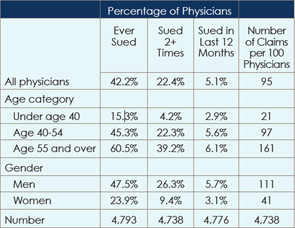A provision in the Affordable Care Act (ACA) that places an excise tax on the sale of medical devices would apply to some tools used by otolaryngologists
Where the Presidential Candidates Stand on Key Health Care Issues
President Barack Obama’s and former Governor Mitt Romney’s positions on issues affecting the medical profession.
IPAB is Medicare’s New Hammer for Spending Accountability
The Independent Payment Advisory Board will have the authority to cut Medicare provider spending to keep it below a cap, with unprecedented autonomy

Making Up the Difference: Otolaryngologists find ways to provide care for under- and uninsured patients
Doctors Rima and Robert DeFatta, married otolaryngologists who work at Sacred Heart Hospital in Eau Claire, Wisconsin, spend about an hour each day dealing with insurance-related hassles. About 20 percent of their patients are un- or underinsured, so the two physicians spend time dashing off letters to insurance companies, re-jiggering treatment plans and helping patients access available resources. Recently, Rima DeFatta, MD, had to figure out how to diagnose a patient who presented with symptoms that suggested possible neurologic involvement.

New Ways to Deliver Care: The Center for Medicare and Medicaid Innovation promises cost-cutting ideas
One of the most common criticisms of the 2010 health care reform law is that it doesn’t do enough to reduce health care costs. Richard Gilfillan, MD, however, begs to differ.
Physician Groups Set 2011 Agenda: Medicare payment reform tops the list
Physician groups representing otolaryngologists have ambitious 2011 policy and legislative agendas that include pushing for replacement of the Medicare physician payment formula and helping to shape health reform’s implementation.

Experimental Tort Reform: States take different approaches to implement change
The health care reform law passed in March created a $50 million demonstration program to test alternatives to the current medical liability system. But reaction is mixed as to whether the new project will help fix what the physician and medical liability insurance communities view as a flawed and inefficient system.
The Medical Home Gains Momentum: Could a team-based model work for otolaryngology?
The patient-centered medical home’s star appears to be rising. Thirty-eight states are testing this model of care in some way, according to the National Academy for State Health Policy. The federal health system reform law, passed this spring, includes several provisions encouraging the concept.
Response from the editor
Dr. Sims has eloquently identified the value of diversity not only in otolaryngology, but also its contribution to the strength of the U.S. as a nation. Drs. Kuppersmith and Thomas have responded to his editorial indicating steps that the AAO-HNS has taken and is currently taking to increase diversity.
Resident Restructure: Attendings adjust to new work-hour rules
The new duty hour regulation from the Accreditation Council for Graduate Medical Education (ACGME) that limits first-year residents to 16-hour shifts has drawn a conflicted chorus of reactions from attendings, who have only seven months before the stipulation goes into effect.
- « Previous Page
- 1
- 2
- 3
- 4
- …
- 9
- Next Page »